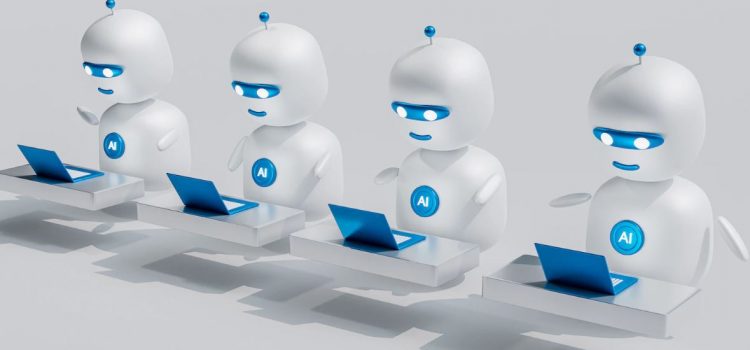
This is a free excerpt from one of Shortform’s Articles. We give you all the important information you need to know about current events and more.
Don't miss out on the whole story. Sign up for a free trial here .
Who will win the chatbot wars? What obstacles do they face? How is the battle to dominate conversational AI evolving?
ChatGPT’s popularity has ignited intense competition among tech giants to lead the AI chatbot market. Microsoft, Google, Amazon, and Meta are all rapidly developing conversational AI tools and integrating them into products in hopes of reshaping the search engine, productivity software, and consumer electronics markets.
Read below for a background on the chatbot wars and who the players are.
Battle of the Chatbots
The chatbot wars are on, with Microsoft, Google, Amazon, and Meta all pushing ahead at breakneck speed to unveil major initiatives in hopes of leapfrogging OpenAI’s smash-hit ChatGPT.
Background
In November 2022, OpenAI released ChatGPT, a chatbot that showcased a remarkable capacity to generate human-like responses to queries, explain concepts, write essays, and code with minimal prompts. The tool quickly captivated the public imagination, attracting 30 million users and receiving five million daily visits. Within two months of its launch, ChatGPT amassed over 100 million users.
ChatGPT’s runaway success sparked intense interest across the tech industry, highlighting the vast potential of conversational AI. It also spurred tech giants to accelerate their efforts in creating and integrating similarly advanced AI into their products and services, spurring the chatbot wars.
Players in the Chatbot Race
Major tech companies that are competing with OpenAI to dominate the chatbot wars and reshape the search industry, productivity software, and consumer electronics markets include Microsoft, Google, Amazon, and Meta.
- In January, Microsoft partnered with ChatGPT creator, OpenAI, for $10 billion.
- In September, Google integrated its AI tool, Bard.
- Last month Amazon invested up to $4 billion in AI startup Anthropic to compete with Google and Microsoft.
- In late September, Meta introduced Meta AI, a conversational assistant, enabling users to search its social media platforms through Microsoft’s Bing.
Hurdles Competitors Face
Experts assert that as tech giants race for chatbot dominance, they’re likely to encounter roadblocks, including:
- AI models continue to grapple with problems that could mislead and turn off users.
- There remains no consensus on how to prevent the exploitation of AI-generated images for propaganda and disinformation.
Further, some tech giants’ AI-related practices are—or are likely to be—heavily scrutinized. For example:
- OpenAI faces legal action for using authors’ works without permission or compensation to train ChatGPT.
- Meta is under fire for its open-source strategy, which allows companies and researchers to modify its program code and which critics say is vulnerable to misuse.
- Regulators and activists will likely question Meta’s ability to protect user data, its data collection practices, and its measures to protect users from chatbots that disseminate harmful content.
Looking Ahead
Some experts assert that tech companies are rapidly deploying systems they know are flawed in their quest for generative AI dominance.
Others say that the chatbot wars—and the competitors in it—is entering a second phase: Initial consumer enthusiasm for AI is waning, ushering in a new, burgeoning industry centering on supercharged AI models.

Want to fast-track your learning? With Shortform, you’ll gain insights you won't find anywhere else .
Here's what you’ll get when you sign up for Shortform :
- Complicated ideas explained in simple and concise ways
- Smart analysis that connects what you’re reading to other key concepts
- Writing with zero fluff because we know how important your time is






